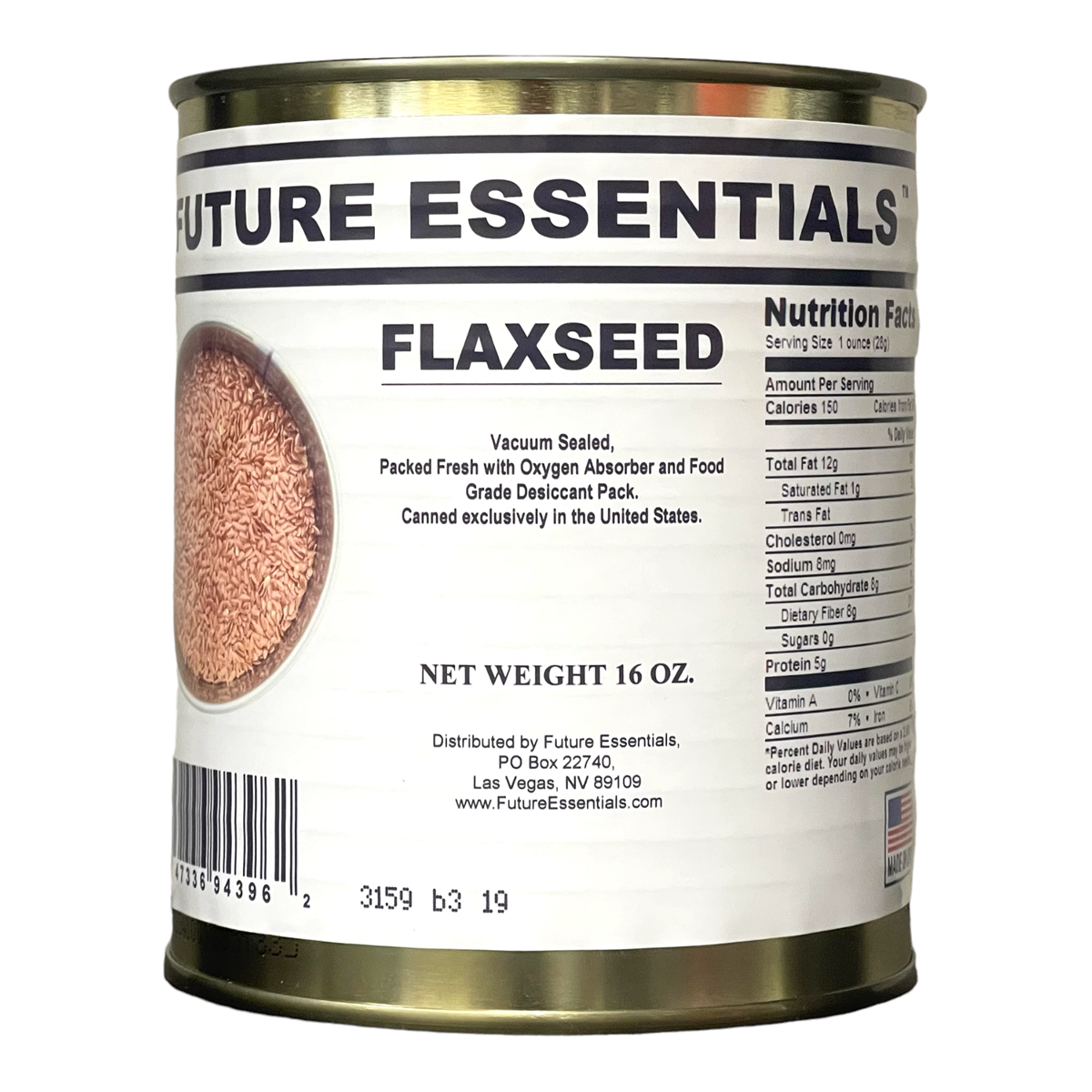
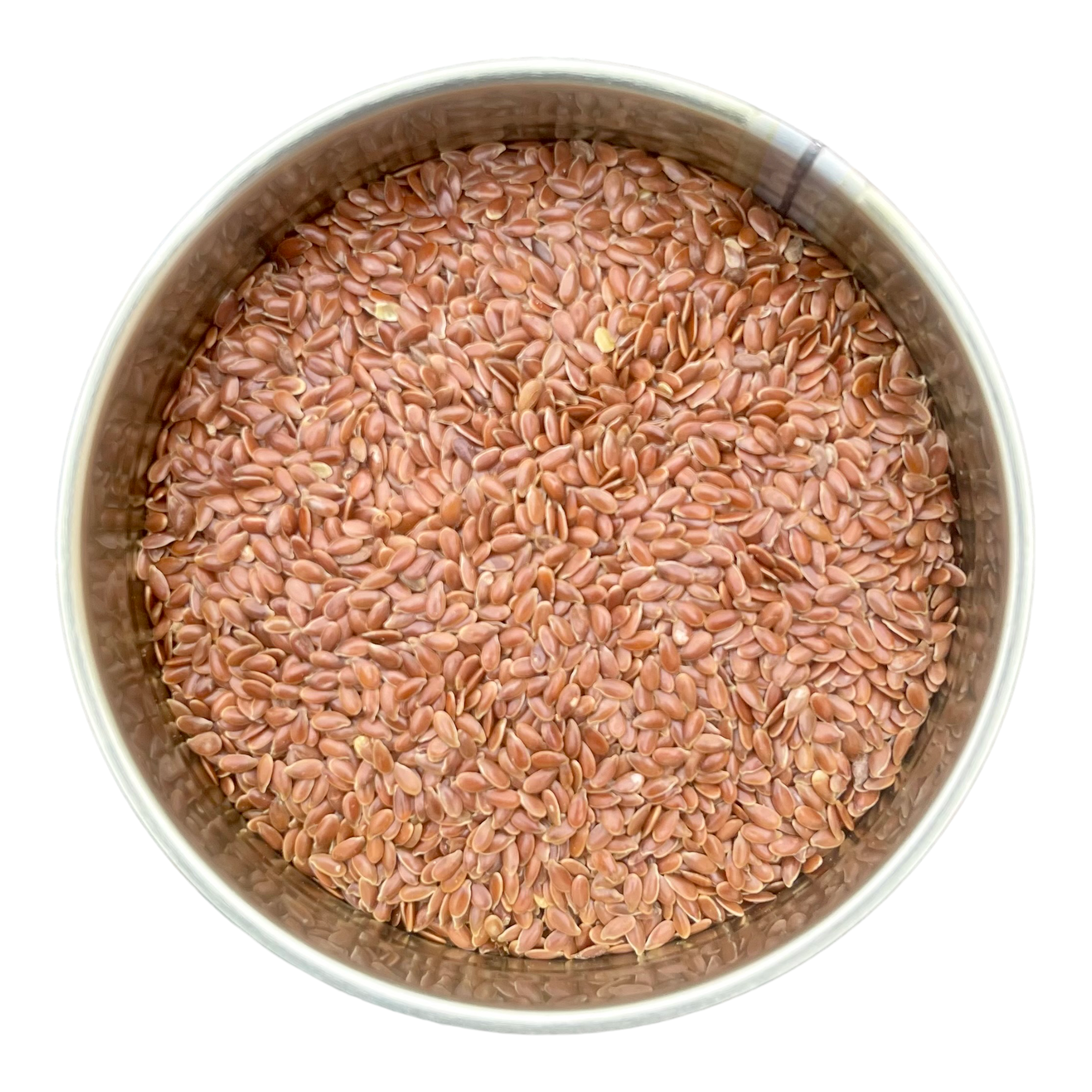
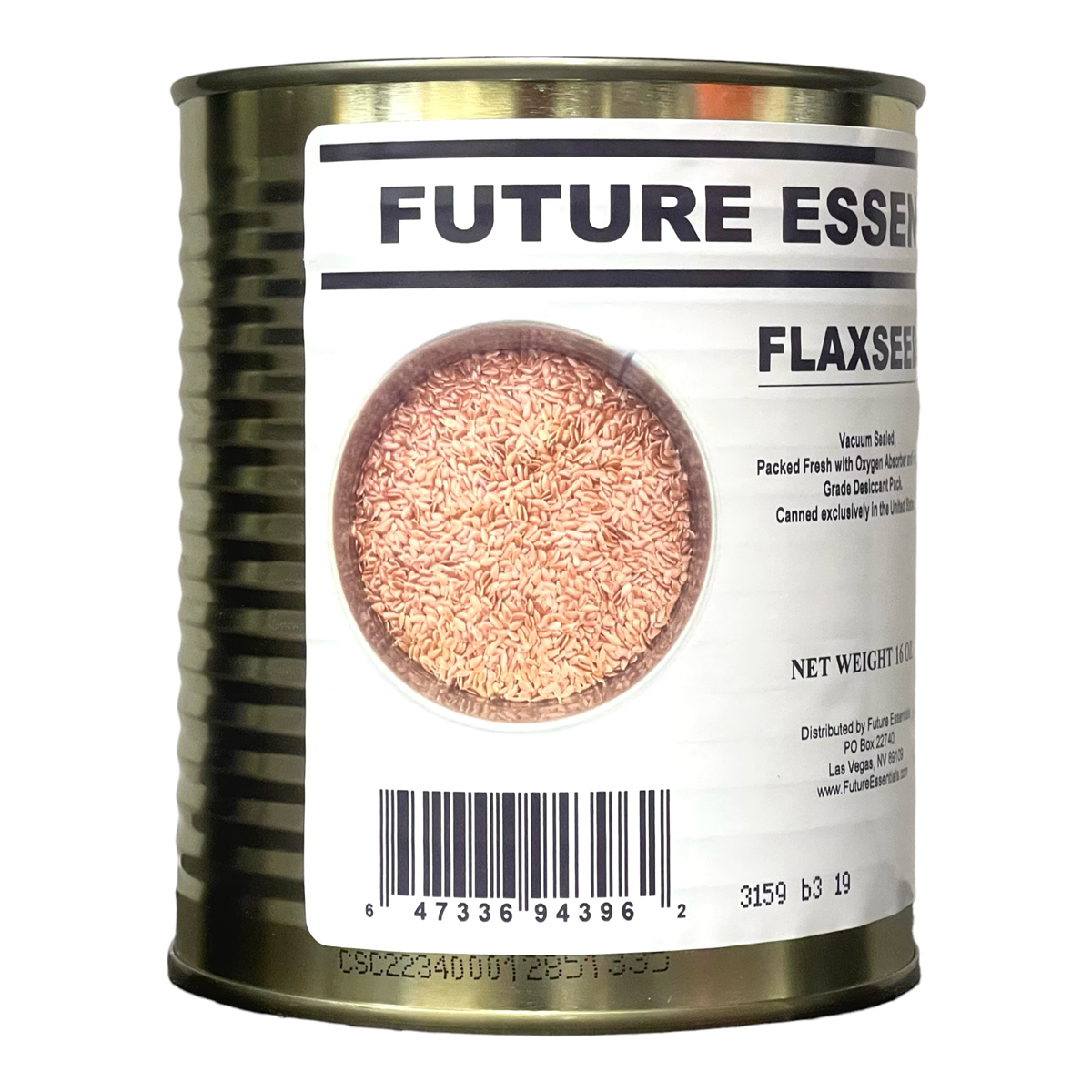
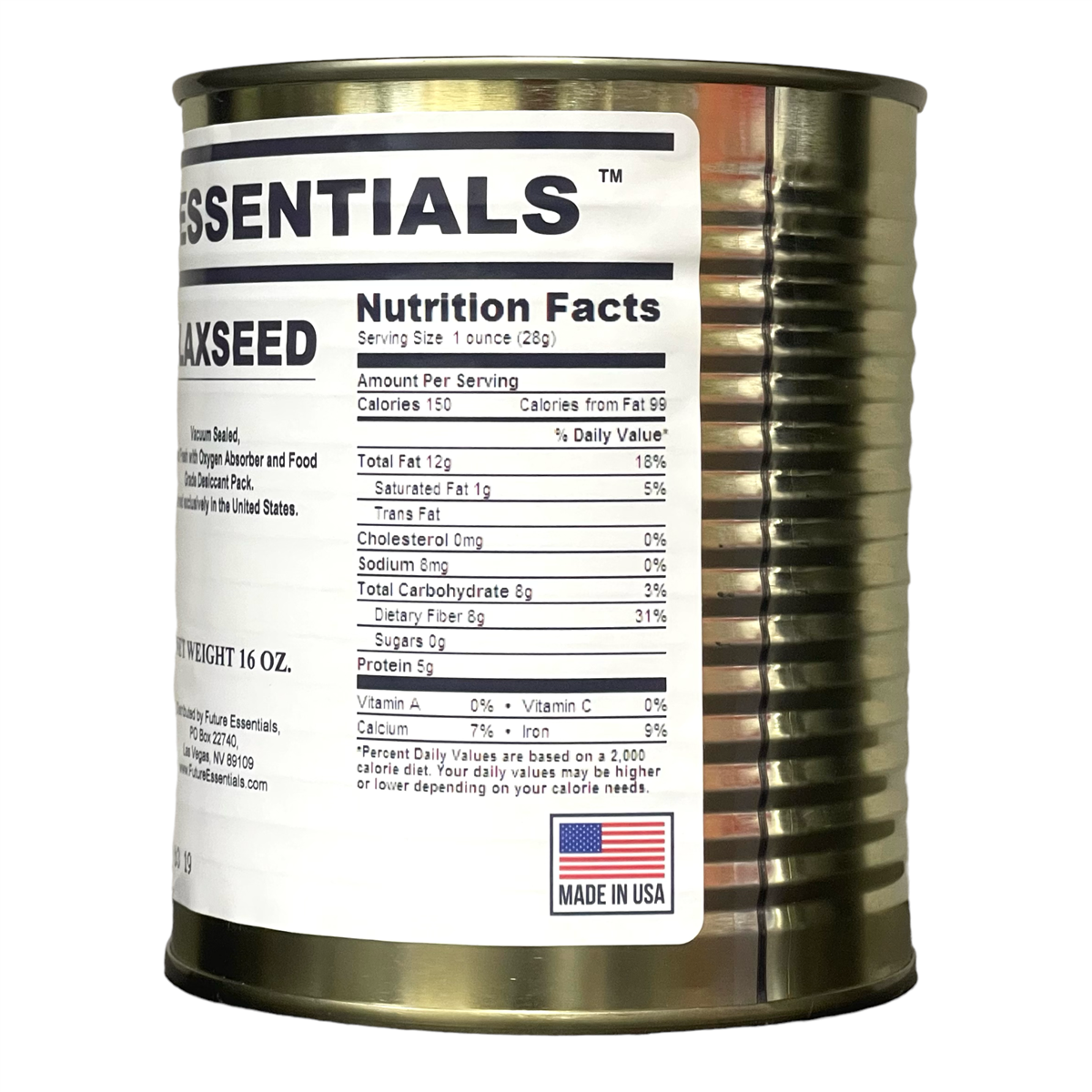


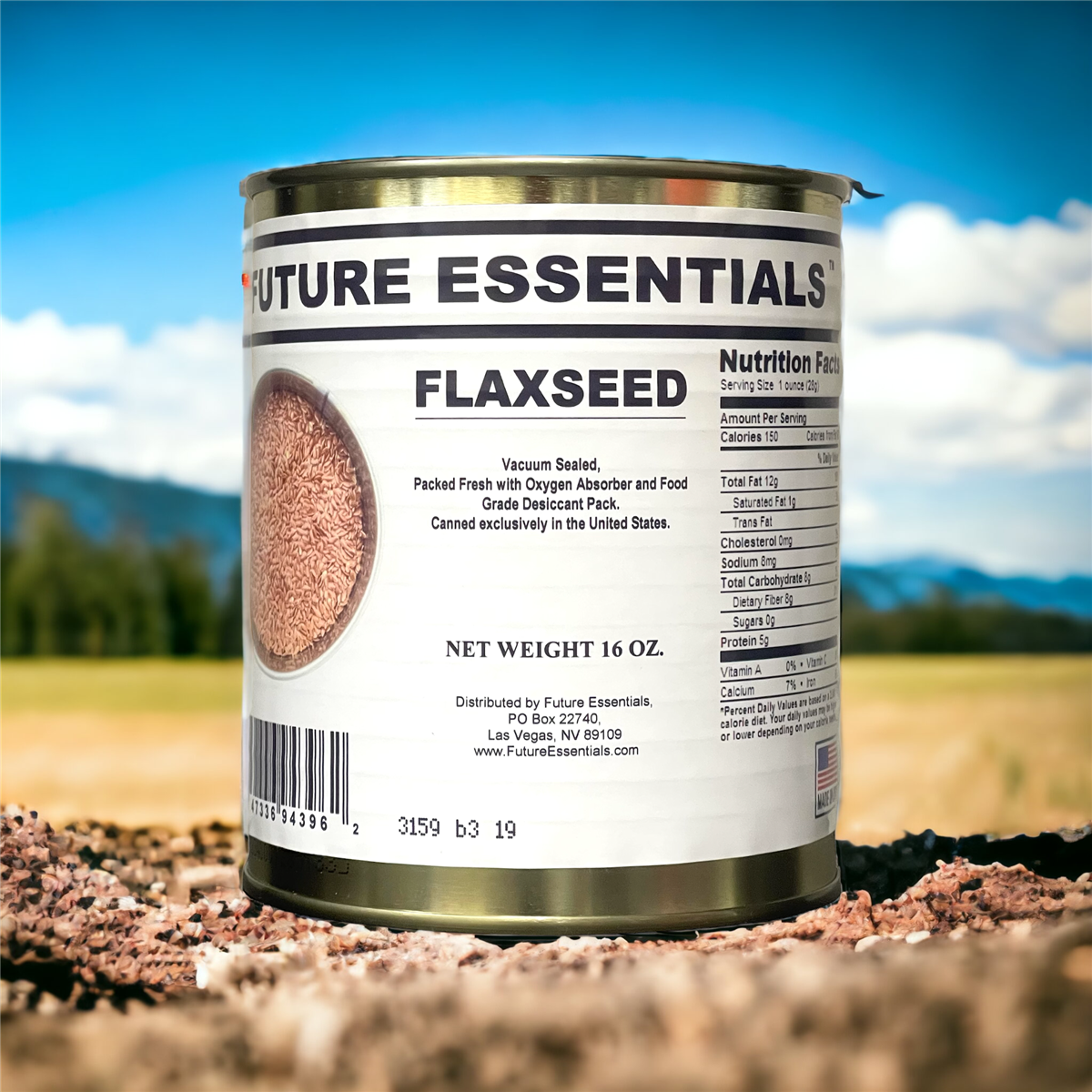
MRE Depot
Future Essentials Flaxseeds
Units:Can
Quantity:
Pickup available at Shop location
Usually ready in 24 hours
Future Essentials Flaxseeds
Can
Shop location
Pickup available, usually ready in 24 hours
942 Calle Amanecer
Suite B
San Clemente CA 92673
United States
#2.5 Can / 16 oz.
MREdepot Exclusive
Flaxseeds are a good source of dietary fiber and omega-3 fatty acids and can easily be added to baked goods such as biscuits, pancakes, waffles, muffins, and breads. Try adding a handful of these seeds to cereals and granola. The fiber in flaxseed is found primarily in the seed coat. Researchers believe this fiber binds with cholesterol in the intestine and prevents it from being absorbed. Flaxseed also seems to make platelets, the blood cells involved in clotting, less sticky. Overall, flaxseeds effects on cholesterol and blood clotting may lower the risk of hardening of the arteries (atherosclerosis).
Flaxseed is the seed from the plant Linum usitatissimum. Flaxseed was cultivated in Babylon as early as 3000 BC. In the 8th century, King Charlemagne believed so strongly in the health benefits of flaxseed that he passed laws requiring his subjects to consume it. Now, thirteen centuries later, some experts say we have preliminary research to back up what Charlemagne suspected. Interesting fact, flaxseed is what's used to feed all those chickens that are laying eggs with higher levels of omega-3 fatty acids.
15 Years
MREdepot Exclusive
Flaxseeds are a good source of dietary fiber and omega-3 fatty acids and can easily be added to baked goods such as biscuits, pancakes, waffles, muffins, and breads. Try adding a handful of these seeds to cereals and granola. The fiber in flaxseed is found primarily in the seed coat. Researchers believe this fiber binds with cholesterol in the intestine and prevents it from being absorbed. Flaxseed also seems to make platelets, the blood cells involved in clotting, less sticky. Overall, flaxseeds effects on cholesterol and blood clotting may lower the risk of hardening of the arteries (atherosclerosis).
Flaxseed is the seed from the plant Linum usitatissimum. Flaxseed was cultivated in Babylon as early as 3000 BC. In the 8th century, King Charlemagne believed so strongly in the health benefits of flaxseed that he passed laws requiring his subjects to consume it. Now, thirteen centuries later, some experts say we have preliminary research to back up what Charlemagne suspected. Interesting fact, flaxseed is what's used to feed all those chickens that are laying eggs with higher levels of omega-3 fatty acids.
15 Years

